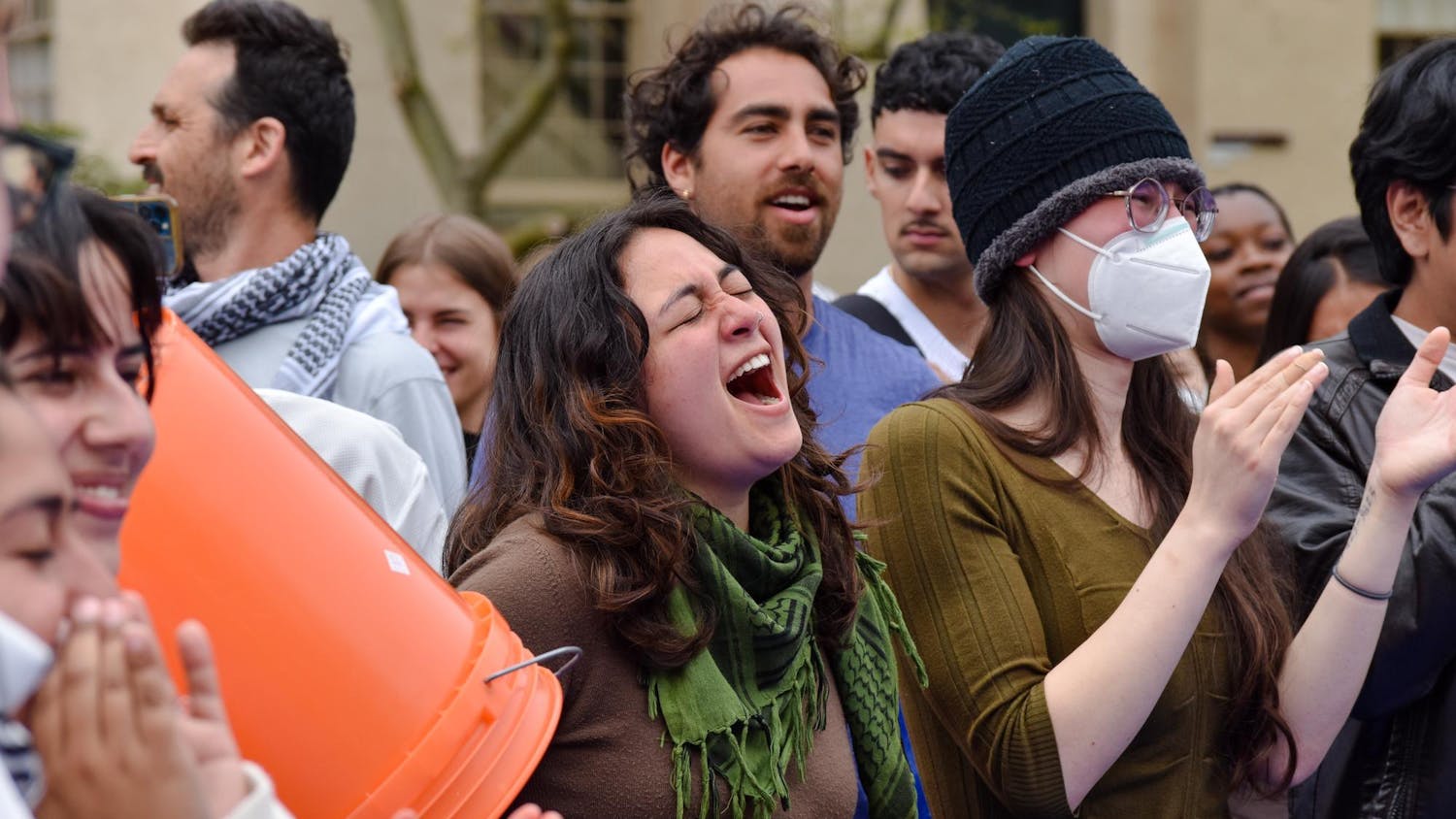Corrections appended.
The Undergraduate Finance Board distributed over $1.1 million raised through the Students Activities Fee to fund groups on campus this year, according to Chair Adam Kiki-Charles '11. But the funding process remains largely unfamiliar to the general student body.
The board allocates funds to student groups according to a three-tiered category system. The roughly 270 Category II and 160 Category III student groups receive baseline funding of $200, though Category III groups may also submit budget proposals in the spring to receive additional funds. Category I and service groups receive no funding.
Funding decisions for Category III groups are made according to the nature of the group, the nature of its hosted events, previous funding levels and UFB's budget, Kiki-Charles said. The board prioritizes funding activities that will "directly impact Brown students," especially those offered free of charge, he added. But funding levels range widely given the diverse needs of groups who qualify as Category III. And determining the right amount can prove tricky.
In the board room
"We tend to look at the mission of the group," said Ralanda Nelson '12, Undergraduate Council of Students student activities chair and UCS president-elect. "Can they operate in the fullness of that mission with the amount of funding that we provide?"
A representative from each group meets with a UFB representative to discuss budget proposals. While funding is partly up to the board's discretion, there are certain rules that UFB always follows. Funds are usually provided for capital improvements, but UFB does not fund food, recruitment or fundraising efforts, events held during reading period or decorations.
"The hard and fast rules are there for a reason," Nelson said. Though UFB created the Student Activities Endowment in 2009, the board has limited funding. Stephen Robert '62 P'91 recently pledged $1 million to the fund, committing himself to leading fundraising initiatives.
The endowment's expansion will provide UFB with "a lot of flexibility in the future," Kiki-Charles said. UFB is also looking into the expansion of media services for all groups, Nelson said.
Due to high levels of required funding, the Brown Lecture Board, the Brown Concert Agency, the Special Events Committee and UCS — all Category III groups — are given special consideration, Kiki-Charles said. "Their mission requires that we treat them differently," he said of the four groups. "They produce singular events that impact thousands of students."
UFB funds food at SPEC events and the Brown Lecture Board and BCA receive large lump sums to host high profile speakers and performers on campus, he said. UFB is also working to provide UCS with discretionary funds to start new projects.
"I don't think of it as a ‘us versus them' fight for funding," said Liza Weisberg '12, co-president of Brown Lecture Board. "We definitely trust that the UFB has the best interests of our student group in mind." Though the Lecture Board's budget will be smaller this year, she said the UFB was "always very helpful in collaborating and cooperating."
"My representative was very knowledgeable of things that went above and beyond just funding student groups," said Fiona Condon '12, station manager of Brown Student Radio. She added the process was "easy and quick" when a piece of equipment broke and she had to make a supplemental funding request. Though BSR rarely receives all the funds it requests, the group is always provided with an explanation of UFB's decisions, she said.
A controversial process
But certain groups have had more difficulty with UFB. Natalie Van Houten '14, treasurer for Students for Sensible Drug Policy, expressed frustration that her group only received $273. The group also did not receive funding to travel to a conference that club members traditionally attend. SSDP was asked to come back with an argument for why four students should be able to attend the conference, she said. UFB will normally fund up to three students to go to conferences, according to its website.
"We feel like we really have been shafted," Van Houten said, adding that five out of seven items for which she requested funding were rejected. "The budget that's been written for next year is just ridiculous," she said. The group was asked to return to UFB at a later date for supplemental funding.
Charlie Wisoff '11.5, former president of the Brown University Mediation Project, said his group did not receive the same funding level it had previously received because UFB demanded more details about the requested funds. "I think (UFB) could probably be a little more democratic — (get) more of the student body involved in the process," Wisoff said.
The Brown Band, another Category III group, also faced problems getting funding for off-campus events.
Dara Illowsky '14, the band's business manager, said UFB's policies were more stringent this year — she was asked to go through the appeals process and had to answer questions about specific items before she could receive any funding. The board should be more transparent about budgeting, Illowsky said. They "should be very explicit about where funding is going and where it's coming from," she said.
But the board is more open than many groups give it credit for, Nelson said. Though UFB has closed deliberations, it posts its policies and minutes on its website, including information on why an objection was made.
Illowsky said she recognized the dilemma that UFB faces. "I know it's frustrating for them, too — when they can't give out money that they want to," she said.
Funding philanthropy
Two years ago, UCS and the Student Activities Office created a new category designated S for service groups. Groups that fell in this category were no longer eligible for UFB funding.
If Health Leads, a Category II group, is recategorized to Category S, the loss of funds will mean the group can do less to promote awareness on campus and will now focus solely on helping the Providence community, said Amy Traver '12, co-campus coordinator of the group.
"We are connected to a national organization, but we are still very much a Brown student group," Traver said. "We should be able to access the things that Brown student groups have access to." There needs to be "better communication" between UFB and service groups, she said. For now, the group continues to receive funding from the Swearer Center for Public Service and its national organization.
Seeking other sources
In addition to funds from UFB, student groups can approach the SAO for funding. The Late Night Fund is available for any groups seeking to host non-alcoholic events on weekend nights, said Katie Colleran, program associate for student activities and religious life. The fund supported over 40 events last year, including the Brown Folk Festival and a comedy night for Stand Up Comics, she said.
Funding also comes from higher up. Dean of the College Katherine Bergeron said student groups unable to find funding through other mechanisms often apply for discretionary funds from her office. But budget constraints left fewer discretionary funds available this year, she said. The office recently funded events such as Strait Talk, guest speakers, film screenings and a production of "Rent."
"We don't make people jump through too many hoops," Bergeron said. Students applying for funding had to include a faculty endorsement with their application.
Certain groups such as the Ivy Film Festival have also been "great about off-campus fund raising" and use corporate sponsors in addition to UFB spending, Nelson said.
The board is actively engaged in dialogue with the SAO to discuss how t
o better support student groups lacking funds, Kiki-Charles said. He said conversations need to continue, not only about how UFB can better support student groups, but also about how the University can better support UFB. "If we had infinite funding we could give (groups) a lot more support," he said, "but the reality is we don't."
A previous version of this article incorrectly identified Health Leads as a Category S group. Health Leads is a Category II group. The article also stated that Health Leads receives funding from the Swearer Center for Public Service. The group only receives funding from the Swearer Center for its summer programs and not during the academic school year. The Herald regrets the errors.




